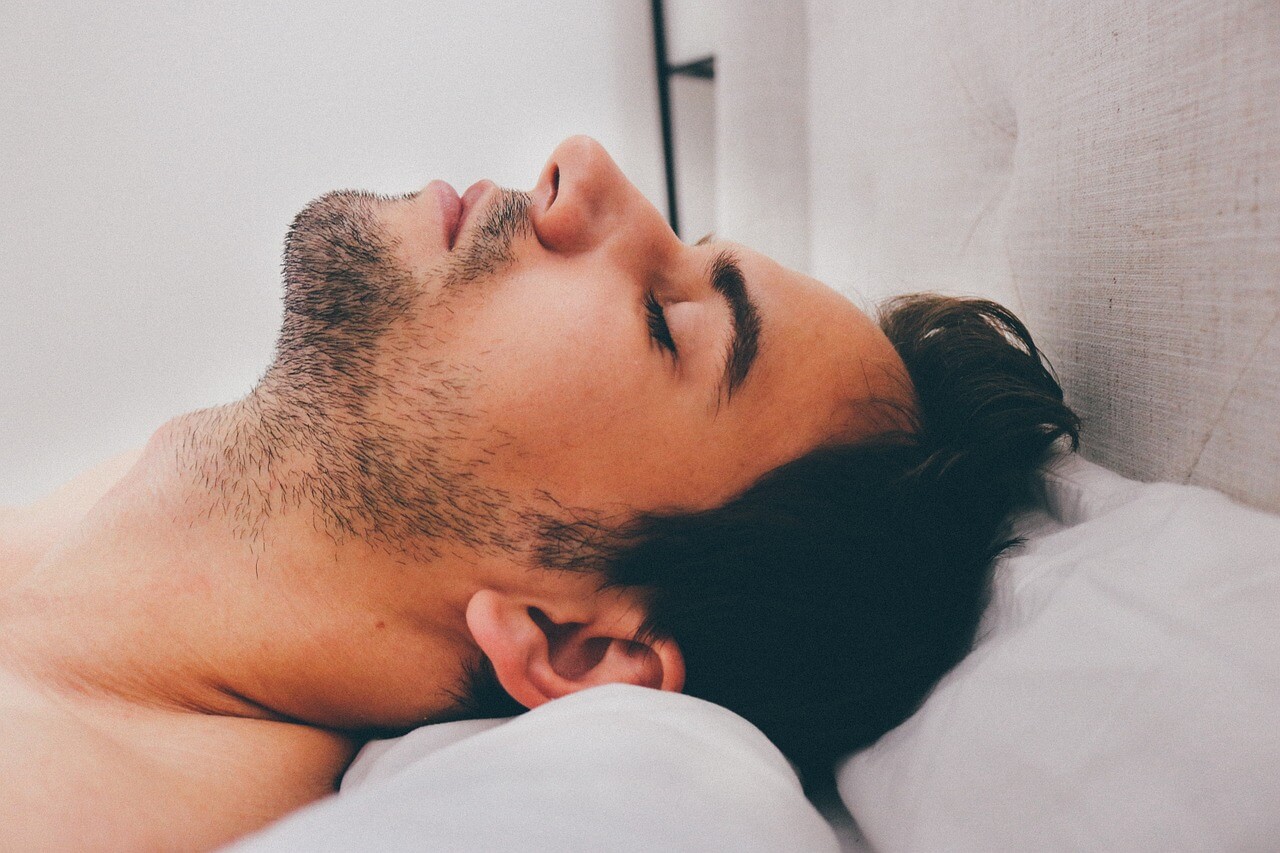Obviously, you cannot literally sleep 8 hours in 4 hours. But you can try to get restful sleep while spending less time in bed.
This will not work if you plan to do it daily. Even if you sleep deeply, not getting the right amount of sleep for several days will affect your health.
If you can, get 6-9 hours of sleep every day. On those days when circumstances force you to sleep late or wake up super early, we have some useful tips on how you can still wake up rested.
How Much Sleep Do Adults Need?

Experts recommend that adults get 6-9 hours of sleep daily. Each person has their own ideal sleep period.
To determine yours, go to sleep and don’t set an alarm. Check the time your body wakes up naturally and you don’t struggle to get out of bed. Track your sleep and wake up time for several days to determine how much sleep you need.
It can be on the lower side (6-7 hours) for some people or more (8+ hours) for others. The average for many people is about 8 hours. There are also people with genetic mutations that allows them to get by on just 4-5 hours of sleep without any adverse effect.
Can You Sleep 8 Hours in 4 Hours?
Technically, no. What you can attempt is to get the same quality of sleep you’d have gotten in 8 hours, in half the time.
You are essentially going to try to sleep quickly and deeply so that you wake up rested without sleeping the full 8 hours.
Prepare For Sleep
To do this, make sure your body is ready to fall asleep the moment your head hits the pillow. That means being careful about what you eat, drink, and do in the evening and before bedtime.
Some obvious things to avoid include caffeine and heavy meals just before bedtime.
Create a bedtime routine that relaxes your body and makes it easier to fall asleep faster. Put away gadgets an hour before bedtime, take a warm bath to trick your body into getting drowsy, try some meditation to relax your mind and so on.
Exercise has also been shown to help people sleep quicker and deeper. But make sure you stop working out a couple of hours before you sleep.
You’ll also need an environment that is conducive for sleep. A dark, quiet, and cool bedroom is the best for sleeping well.
Make sure your bed is comfortable as well. Get a good mattress that supports you and relieves pressure on your shoulders and hips (you can use a topper to make your current mattress comfier before you get a new mattress). A comfortable supportive pillow is also important.
And if your bed tends to get too warm, switch to breathable sheets made from fabrics like percale cotton and bamboo. There are also mattress toppers and pads designed to keep you cool in bed.
Your sleep temperature is really important in getting quality sleep.
Avoid Sleep Disruptions
You also need to get rid of things that can disrupt your sleep in the middle of the night.
One of the biggest sleep disruptors is alcohol. Sure, it’ll knock you out cold in no time. But it’ll disrupt your sleep later on and you’ll wake up tired.
Don’t drink any alcohol in the evening, or drink just a little.
Keep gadgets out of the bedroom to reduce the risk of a call or notification rousing you out of sleep. And if you often wake up in the middle of the night to use the bathroom, consider reducing your fluid intake in the evening.
Is It Healthy To Sleep For Four Hours A Night?

Once you do all these things to fall asleep quickly and enjoy deep sleep, you can wake up feeling fresh and rested despite sleeping for just 4 hours.
But, as we mentioned earlier, this works only if you do it occasionally. That’s because, even if you feel great, you still have sleep debt and your body will not forget.
You’ll normally recover the lost sleep the next night. But if you sleep for four hours on consecutive nights, you won’t escape the fatigue, stress, and other adverse effects that follow sleep deprivation.
Over a long period, sleep deprivation increases the risk of heart disease, obesity, depression, diabetes and a host of other health problems.
Only sleep for four hours if you absolutely have to. The next day, sleep earlier to help your body recover.
If you have time during the day, take a nap or two. It’ll help keep you alert.
What Is Polyphasic Sleep?
Polyphasic sleep is a technique (or sleep hack) that some people use to help them reduce sleep time to as low as 2 or 3 hours while remaining energetic and alert.
Polyphasic refers to sleeping in multiple phases throughout the day, as compared to regular monophasic sleep where you sleep in one long stretch.
Currently, there is no evidence that polyphasic sleep works or that the body can adapt to the reduced sleep time.
If anything, polyphasic sleep carries the same health risks associated with sleep deprivation.
The only time polyphasic sleep is beneficial is when you are trying to stay alert after a night or two of sleep deprivation. Taking multiple short naps during the day can help you stay alert until you are able to sleep well again.
Other things you can do to stay alert include eating a healthy diet (processed foods high in sugar can make you feel more tired), doing a light workout, drinking coffee or anything with caffeine, and spending time in a naturally lit environment.




